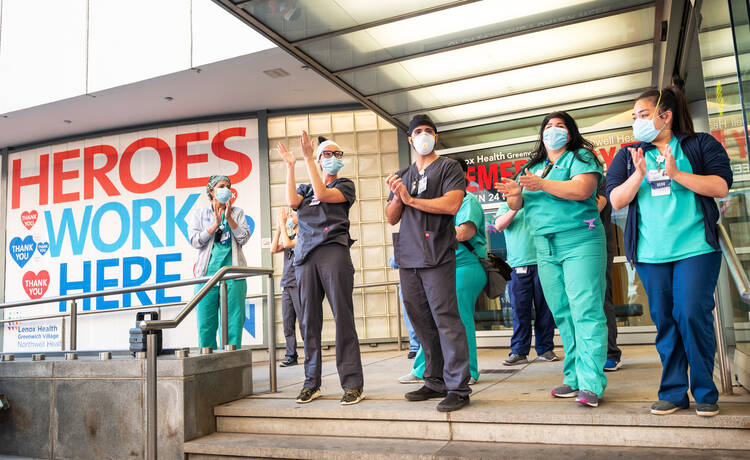I still find myself marveling at the simple act of being together again. Sometimes I am in a grocery store or a restaurant or the office, and I have an urge to stand on an orange crate or a table or a desk and shout: Can you believe we are all here?!
On a recent visit to New York, I took the No. 1 train uptown, and the conductor announced that our train would go straight to 145th Street, skipping five local stops. In response, the train erupted in angry shouts of protest. One woman screamed, “One, four, five!?!” and added a forceful expletive between the four and the five, reacting as though we had been told we were on the express train to Hell. And then everyone quieted down and when we reached 145th Street, a huge group of passengers shuffled together off the train and up the stairs, and together we crossed the street and down into another subway entrance, and together we boarded a different train heading downtown that would take us back to where we already had been.
In the Before Times, I might have bemoaned the inefficiency and the shuffle and the forced proximity to angry strangers. But I had no particular schedule to keep, and I just relished being next to people in New York again, to feel anything together—even if it was just anger at something that was not a virus or a politician talking about a virus. In that moment I could not have loved everyone more.
My mind still struggles to grasp the strange both/and of the pandemic. How we tried to defeat a virus, and millions of people died and more survived.
I am learning to live with less fear, too. During the pandemic, I spent hours checking the little tab labeled Covid-19 at the bottom of the New York Times app on my phone. I checked the numbers for my county, the area hot spots; I worried about whether they would rise or fall. Then one day that little Covid tab was gone, as if it had never existed. Instead I tap on one that reads “Play” to do the mini crossword, sometimes before I even click on the headlines.
I feel lucky that my family and I emerged relatively unscathed. I feel guilty that I was lucky. But if I think about it—all of it—for too long, I also still get mad sometimes.
My mind still struggles to grasp the strange both/and of the pandemic. How we tried to defeat a virus, and millions of people died and more survived. How unevenly it was weathered and how unequal the resources that were available. How much money mattered, and how little. And we were all very, very alone, except we were globally bound by a shared experience no one wanted. How it lasted forever and was over in an instant.
My three-year-old daughter ran up the aisle of CVS with her arms out and cried, “This place is so BEAUTIFUL.”
Can something really be over if you can still feel it in your bones?
As of May 11, the pandemic is no longer a health emergency. But as we move forward, so many people are still grieving what was lost and can’t be recovered—time, education, jobs and, most of all, loved ones. The pandemic reminded us how much work lies ahead of us as a society. I pray we do not forget to put in the work. I pray we recall and foster true community and solidarity.
In June 2021, as California eased its Covid restrictions, a deacon in Bonita wrote to me to say that he and his neighbors had gathered together outside in their yards nearly every day for 15 months to pray during the pandemic.
He said they were using a prayer I had written in March 2020. Written at someone else’s suggestion, it came more from a place of duty and fear than hope. I was terrified of a potential pandemic and what I thought would come. And then the terrifying things did come. But also brave and beautiful things. Like a group of neighbors in California being present to one another, and from 3,000 miles away, reminding me not to be afraid, to leave space for grace. We are still uncovering moments of grace.
In the summer when we first started to go into the world again, I took my then-3-year-old daughter to Walgreens for the first time. At that point she had spent the majority of her life within the confines of our home with me and my husband and her two siblings, or at my parents’ house, a six-minute drive away.
I was cautious about our trip to the drugstore, but my daughter was uninhibited. She hurried up and down the aisles taking in the colors and garish fluorescent lights, the round Squishmallow plush toys staring down at us, the candy in rainbow-colored lines, the allergy medicines standing like soldiers, the greeting cards covered in watercolor flowers. Everything just waiting for us, welcoming us. While I tried to find Covid tests and hand cream, she ran up the aisle with her arms out and cried, “This place is so BEAUTIFUL.”
I know, I thought, nearly in tears. Can you believe we are here?!








